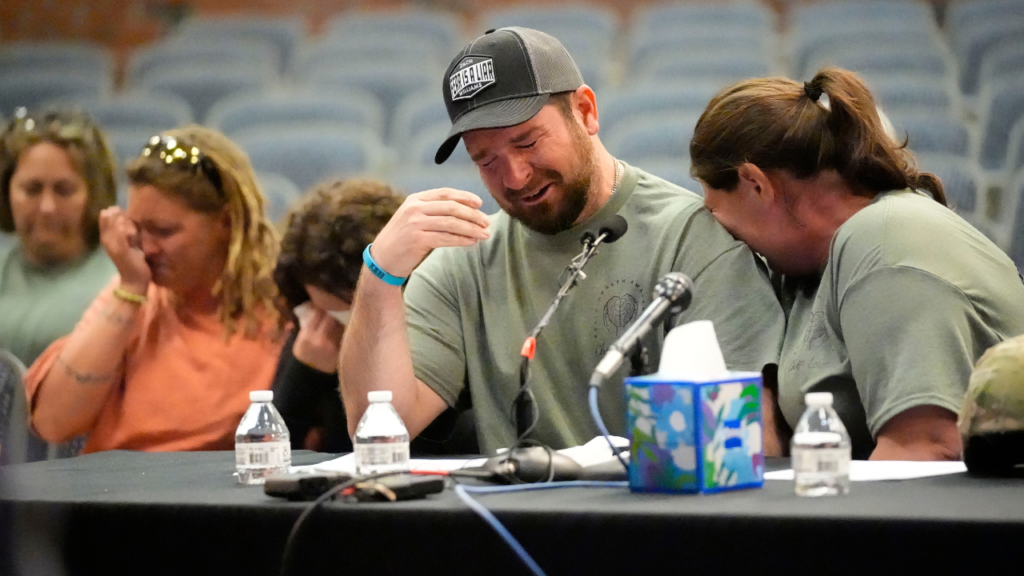The Lewiston mass shooting investigation commission heard emotional testimony from the family of Army reservist Robert Card, who was responsible for killing 18 people in Maine. James Herling, Card’s brother-in-law, detailed the family’s struggles to get him help as his mental health deteriorated. The family tearfully apologized for the deadly rampage and expressed their deep sorrow for the victims and their families. The commission has been meeting for months, hearing from various stakeholders, including police, victims, and Army reservists who served with Card. Prior to this testimony, Card’s family had maintained a low profile, only releasing a statement in March after an analysis of Card’s brain tissue showed evidence of traumatic brain injuries.
The shooting in Lewiston led to new gun laws being passed in Maine, including amendments to the state’s “yellow flag” law. The legislation criminalized the transfer of guns to prohibited individuals and expanded funding for mental health crisis care. Card, who had a history of mental health issues, was found dead from a self-inflicted gunshot wound after an extensive search following the shooting. The family had warned police about Card’s paranoia and concerns about his access to guns. Other reservists had also observed his mental health decline, with one even reporting that he believed Card was capable of committing a mass shooting.
The commission has been working diligently to investigate the circumstances surrounding the shooting and identify any gaps that may have contributed to the tragedy. The family’s testimony shed light on the challenges they faced in trying to get Card the help he needed prior to the shooting. The commission issued an interim report in March, which criticized law enforcement for not taking action to seize Card’s guns and place him in protective custody based on the warnings they had received about his mental state.
The hearings on Thursday also included testimony from an official from the Army Reserve Psychological Health Program, although that appearance was postponed. Commission chair Daniel Wathen expressed gratitude to Card’s family members for testifying, acknowledging the difficult position they were in. The commission is expected to issue a full report this summer, which will provide further insights into the events leading up to the shooting and make recommendations for preventing similar tragedies in the future.
Overall, the Lewiston mass shooting investigation commission is focused on understanding the factors that contributed to the deadly rampage carried out by Robert Card. The family’s testimony highlighted the struggles they faced in trying to get Card help as his mental health declined and the missed opportunities for intervention by law enforcement. The new gun laws passed in response to the shooting aim to strengthen measures for preventing individuals with mental health issues from accessing firearms. The commission’s work will be crucial in identifying areas for improvement in addressing mental health concerns and preventing incidents of mass violence in the future.

